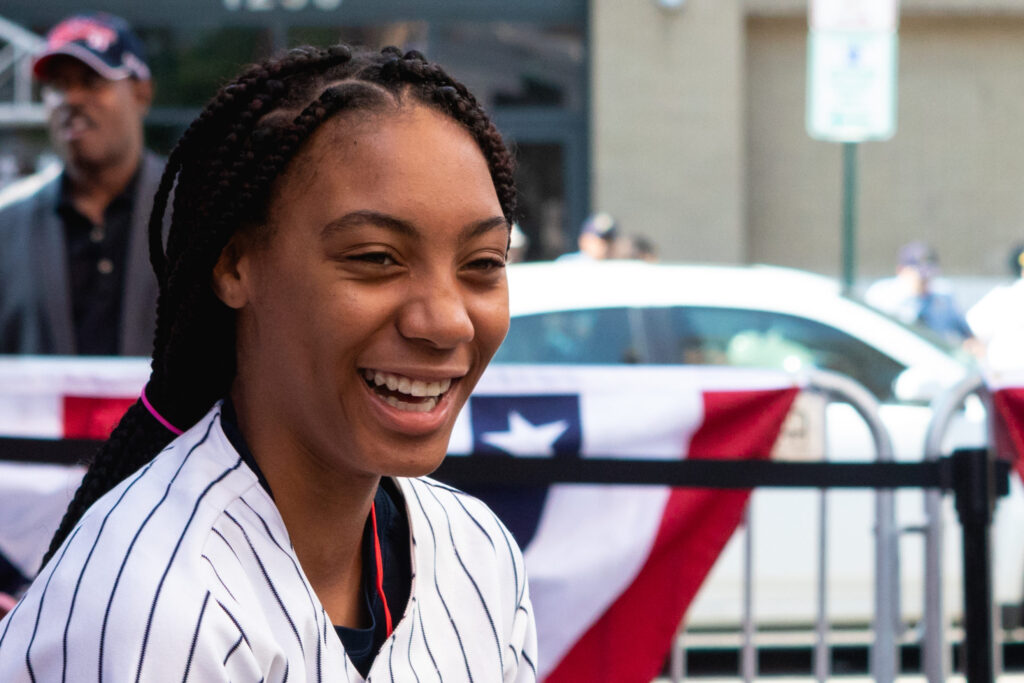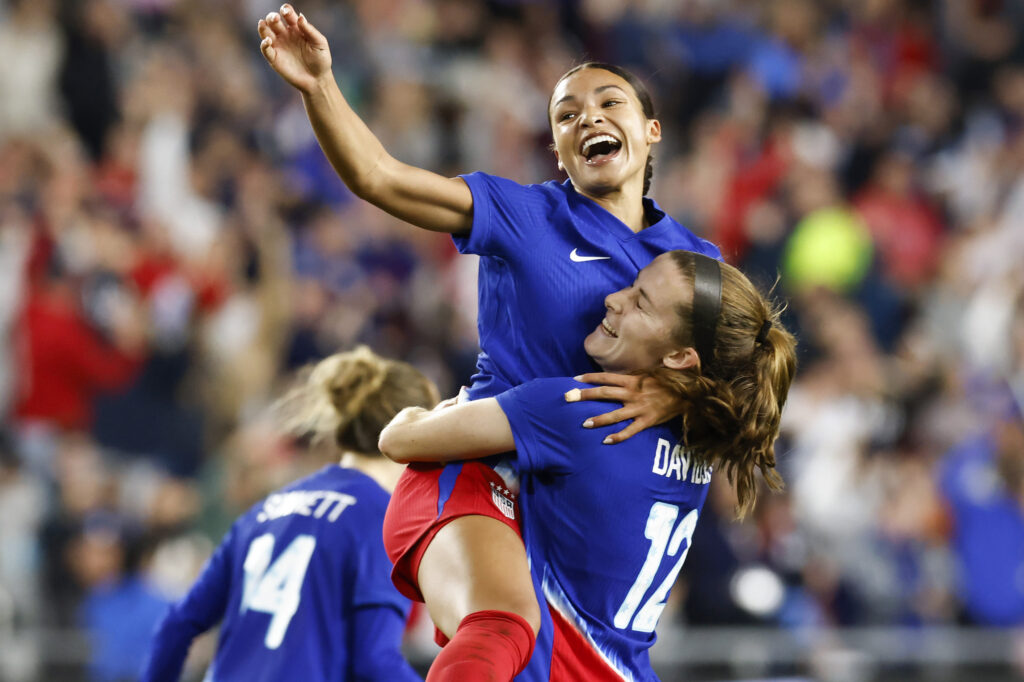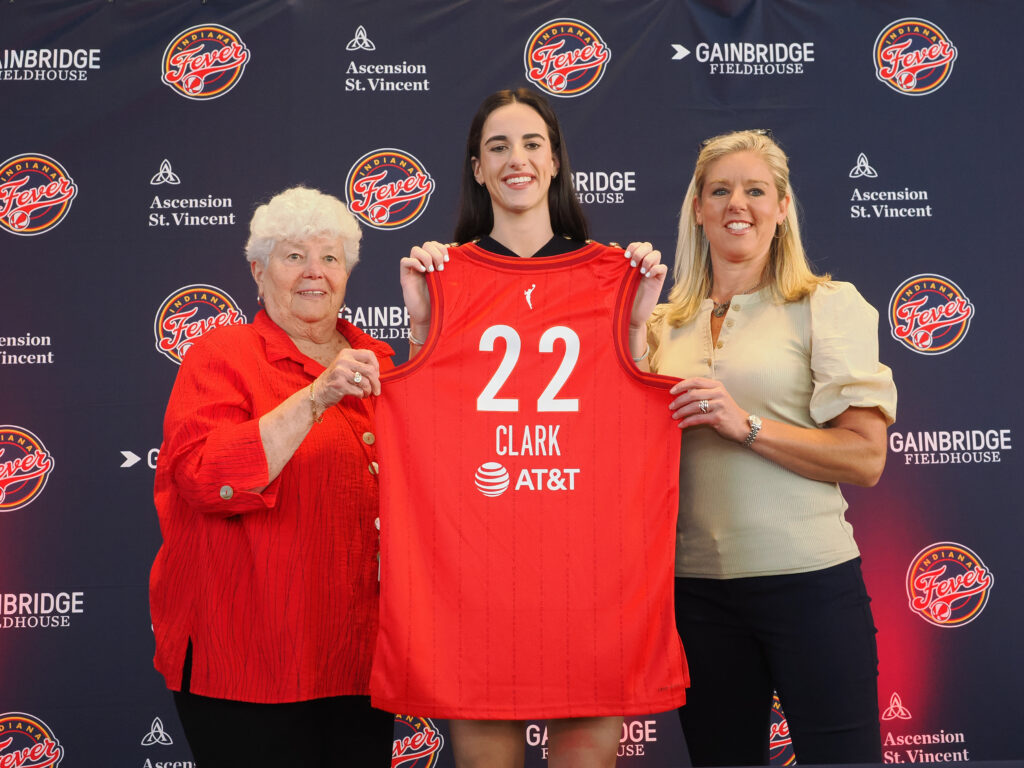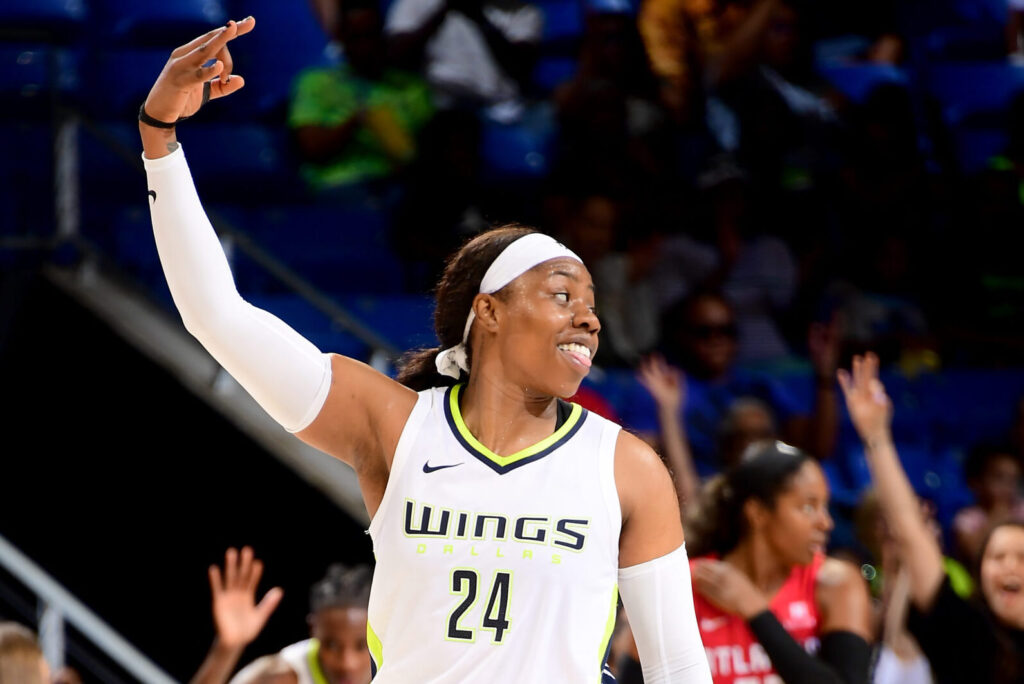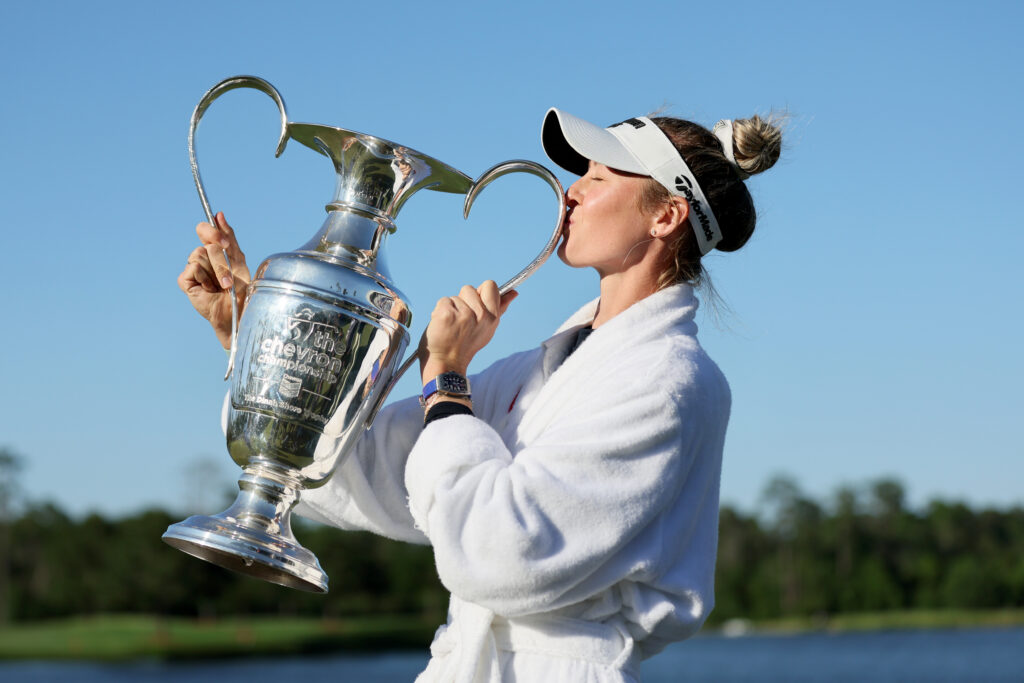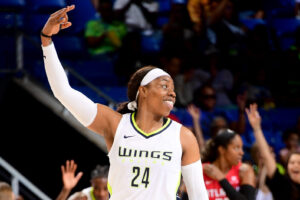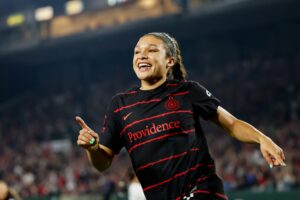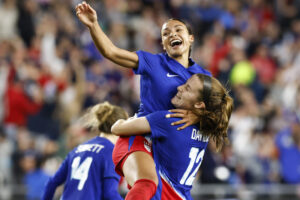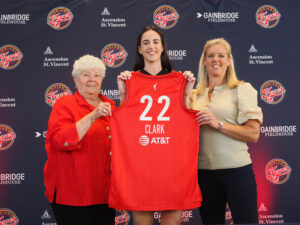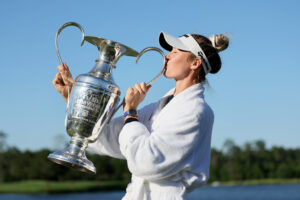Mo’ne Davis is a college softball player at Hampton University entering her sophomore year. Before transitioning to softball, Davis was a Little League baseball pitcher where, at the age of 13, she became the first girl to earn a win and pitch a shutout in Little League World Series history. Below, Davis details her transition to softball, her first year in college and the importance of supporting HBCUs.
You are going to be a sophomore at Hampton this year. Have you started classes yet?
Yeah, I started classes on Monday. We’re all online and at home for the fall. I miss the girls on the team and just hanging out with them and the coaches. But it’s important for us to stay safe and make sure everyone shelters now, so that we can hopefully come back in the spring and have a season.
You made your college debut this past February, and then the season was cancelled because of COVID-19. What have the last few months been like for you?
We had our spring break at the end of February. Honestly, between spring break and when they wrapped up the season, I’d say that was one of the most fun times I’ve ever had playing softball. We were on campus by ourselves during spring break, so we all started to really connect with each other and have a lot of fun. Then the scene just ended out of nowhere. I was sad, but now we are all excited for next year. The good thing is we’re only losing one senior, so we get to keep the same team for the next two or three years. I had a great time for the short period that I had this past season, and I’m looking forward to getting started back up with the girls and just reconnecting with them.
What have you heard about your team’s plans moving forward in terms of either practicing together or preparing to play next spring?
We haven’t really heard anything. Our coach is trying to figure out what we could possibly do. Right now, she’s saying to just work out and be in game shape by February. Personally, I’m working out, taking some ground balls, working on my fielding, working on my hitting, doing a lot of running to stay fit, doing some lifting. I’m trying to do as much as can with what I have. None of my teammates live close to me, but I have my friends from high school who played, so I go and work out with them. I’m just trying to make the best out of the situation, so when the time comes I’ll be ready to play.
Besides COVID, how would you describe your freshman year, both in terms of softball and school?
I would say I really enjoyed it. I thought I was going to struggle with classwork, but I didn’t at all. I had some good friends in my classes. The professors were really nice. A lot of girls on the team helped out to make sure all the freshmen were cool and staying on track. I had a lot of fun and I’m just excited to get back.
This Saturday is the anniversary of your famous Little League World Series shutout. When you look back at your Little League World Series run now, what stands out to you?
I think a lot of people would say my maturity, but for me, whenever I think about Little League, I think about what I did with the other players from around the world. My favorite memory that will always stick with me is when we played dodgeball in the rec room with basically every team there. We were all just being kids and we weren’t focusing on baseball — we were just getting to know each other and hanging out.
Other than that, I would say making memories with my teammates and making new friends was a great part of Little League. I still talk to a lot of the players from different teams. We always bring up memories when we’re all together and we just have good laughs. I don’t really remember too much about the on-field experience because I was just kind of locked in and zoned in.
How did your teammates welcome you when you first arrived on campus? Did anyone ask for your autograph?
Everyone was pretty chill. I met a lot of my teammates before we got started, so we were all super chill. As time goes on, you get to know each other and then everyone starts joking like, “Oh my God, can you sign this?” It’s all jokes once you really get to know each other, but they try to make it as normal as possible for me. Same goes for all of the students at school — they all make sure that I’m comfortable there and that I’m enjoying my college experience.
You were a pitcher in baseball and now you are an infielder in softball. Can you speak to that transition?
I first started playing softball and taking it seriously in 10th grade. The biggest transition for me was base running and learning the rules. In baseball you can take a lead, but in softball you can’t. And some of the base running rules, I wasn’t sure about. I mean, I’m still not really sure about them, I just kind of go along with it.
With playing second base, the hardest thing is making sure I know what I’m doing with the ball and that I get to my position in time. We worked a lot on it in the fall and the spring. It’s hard to work on it now because you don’t have enough people to try to build that team chemistry. I’m going to try and keep learning somehow, but those are really the hardest things for me. I picked up everything else pretty quickly. The fieldings are the same. I don’t pitch which is amazing because I don’t have to learn the pitching motion. It was probably one of the easiest transitions — it didn’t really challenge me that much.
I’ve seen videos of baseball players trying to hit a softball pitch and it is usually a lot harder for them than you would think. How is it for you?
I tell a lot of my old baseball teammates, like, “It might seem that easy, but it’s really not.” But then I have some old teammates who actually know how difficult it is and they’re like, “Yeah. It’s really not that easy,” like “I give props to all the softball players hitting a ball that’s rising, because it looks like it’s going to be right over the plate and then ends up at your head. It’s not easy to hit.” I’m like, “Thank you. There are some respectful baseball players out there.”
You mentioned that you started playing softball around 10th grade. Did you transition to softball because of limited opportunities to play baseball at a higher level as a female? Or, was it because softball is something new and there are more opportunities to play in college?
Well, I played middle school baseball in seventh and eighth grade and I made the varsity team. Then, in ninth grade, I played on the JV high school team and I didn’t get to pitch as much. I liked the coach as a person, but I didn’t like him as a coach. He didn’t really give me a chance to prove myself, to really show that I can hang with the guys. So, it wasn’t as fun. My friends tried to convince me to play softball in 10th grade because they were losing a shortstop. They said that a lot of good players were coming in just to try it out for the year. So, I would say my friends motivated me and persuaded me to hop on the softball train. We ended up winning the league two years in a row.
What went into your decision to play at a Historically Black College/University (HBCU)?
At the moment, I wasn’t really thinking about just going to a HBCU. I just wanted to be comfortable wherever I was. Since I decided to play softball so late, a lot of schools were already done with their 2019 recruits. Two HBCUs reached out and I visited both campuses. I did my research on both colleges, making sure they had my major, looking at the teams and the rosters, and how they did in previous years. I looked at how close each school was to home so that my parents could come visit, and I had a lot of family and friends in Virginia so that was one of the main reasons I chose to go to Hampton. Also, Hampton has a really good journalism school which is what I want to do in the future. All of the girls there were super nice, and the coaches were nice. The team focuses a lot on family and making sure every player is a part of the family. That was really important to me because, growing up, all of my teammates were basically family members to me.
Recently, we’ve seen several top basketball recruits either commit to HBCUs or say they’re planning to consider them. Why do you think it’s important for more Black athletes to consider HBCUs?
I think it’s important in the sense of just giving back to your people. I went to a predominantly white high school. Being one of the few black kids there, some people didn’t have the greatest experiences. I was fortunate that I didn’t have to go through those struggles, but I was always there for whoever had problems. I was always there to help them out and be a shoulder to lean on. Once I went to a HBCU, it was completely different. You are surrounded by people that you can relate to — everyone has different backgrounds, but you can always relate to the person. I think that’s pretty cool.
A lot of players overlook HBCUs because people don’t often get drafted from these schools. I think once basketball players and football players get on campus, they’ll be grateful for the experience and they’ll be able to help push HBCUs to gain more recognition. I know a lot of basketball players, like Chris Paul, are trying to push HBCUs forward. If these high-ranking high school recruits come up, it will really boost the attention HBCUs get. People will want to watch not just that one recruit, but the whole team play.
What else will it take to create a true HBCU movement?
A lot of basketball players are pushing HBCUs, but I think it will really come down to these top high school recruits choosing HBCUs. I mean, for example, you have Mikey Williams who is only a sophomore and he has tons of followers on Instagram and he kind of promotes HBCUs. I’ve had people DM me asking if he’s coming to my school and I don’t even know the kid personally. Just from him promoting HBCUs, other people get involved and start doing their research and looking at the schools. And it just keeps circulating. If high school recruits keep looking at HBCUs and promoting them, it helps boost HBCUs up and give them the attention that they need.
